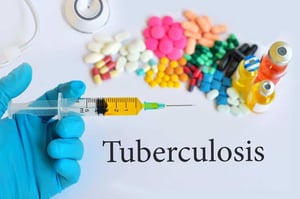An old tuberculosis vaccine, developed in the 20s of the last century by the bacteriologist Albert Calmette and the vet Camille Guérin (both French researchers at the Pasteur Institute of Lille), continues to reserve surprises. Rediscovered as a powerful stimulant of the immune system against bladder cancer (if instilled locally), it is now a candidate for a further role: that of antidiabetes.
According to a study published in Npj Vaccines magazine (Nature group) by the researchers of the Massachusetts General Hospital of Boston, those suffering from diabetes type 1, which is autoimmune, and were vaccinated with this drug (called BCG), have a less severe and progressive trend of the disease compared to those who have not been vaccinated. This evidence was reported by following for eight years a small group of nine diabetics vaccinated with two injections at a distance of one month from each other. After the first three years, the value of glycated hemoglobin (the parameter normally used to check the level of sugar in the blood) had dropped by 10%, and after four years by 18%, thus reaching values very close to those typical of non-diabetic and remaining such for eight years.
The study is still ongoing, because the parameters are also being evaluated by another 110 patients involved in the research, all treated for diabetes with normal therapies but, in half of the cases, also vaccinated with BCG. Based on the results available so far, the vaccinates needed a reduced one-third dose of insulin compared to those who received a placebo.
It has not yet been possible to understand in detail, however, why this happens, and whether the improvement in diabetes should be ascribed to the BCG vaccine, or, instead, to other related biological “mechanisms”, all to be clarified. The criticisms of this approach, in fact, are not lacking. “The results obtained – said, for example, to NBC News Dr. Adrian Vella, endocrinologist at the Mayo Clinic – could be due to something that happened by chance, because people were a bit ‘more diligent in lifestyles, or leaner and conform to the diet “.
It is not easy even for the scientists of Massachusetts General Hospital, in truth, to identify the possible anti-diabetic mechanisms of the vaccine. It seems, in the studies on mice, that the vaccine can increase the levels of T lymphocytes (fundamental cells of the immune system), reprogramming also six genes (that is, six strands of DNA) that regulate cellular metabolism: this could lead to greater consumption of the sugar present in the blood. But everything is still to be verified with certainty, even in humans.
The next few years will tell whether the hypothesis of the Boston researchers – that of using the BCG vaccine as an antidiabetes drug, in fact – is founded or not. But these studies, in any case, will help to better understand the potential of BCG, which does not cease to amaze at its action on the immune system. In addition to the good results against bladder cancer, which we mentioned, it has also been studied for possible effects on multiple sclerosis and other diseases.
On the other hand, its effectiveness against tuberculosis, the disease for which it was born, is very limited: according to the health authorities of the European Union, the BCG can prevent serious forms of tuberculosis in children, but does not offer any protection against TB in adults. The vaccine is “built” on a strain of Mycobacterium bovis (the infectious agent of tuberculosis in cows) that Albert Calmette and Camille Guérin had attenuated after a good 230 steps.

